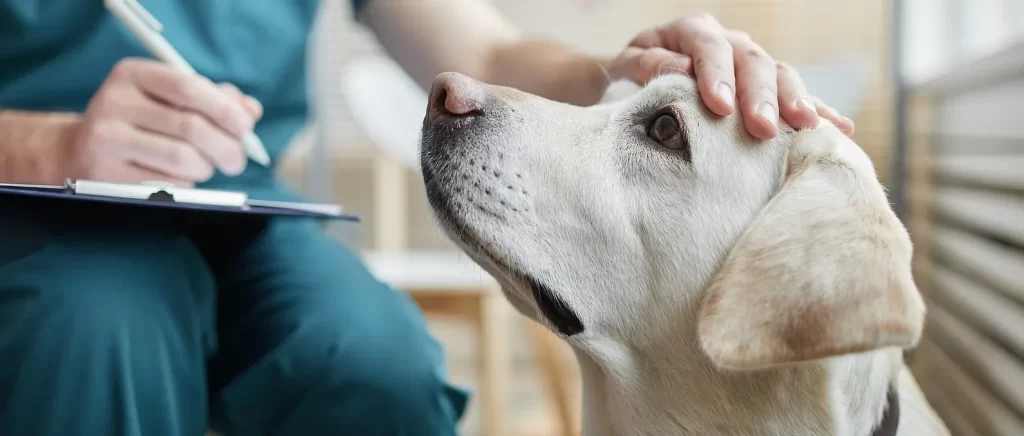Pet insurance in India is growing in popularity as more pet owners realize the value of protecting their furry friends. Whether you have pet insurance for dogs or cat insurance, understanding how to file a claim is crucial. This guide will walk you through the steps, tips, and tricks for filing a pet insurance claim in India, making the process as smooth as possible.

Understanding Your Pet Insurance Policy
Before filing a Pet Insurance Claim in India, you need to thoroughly understand your pet insurance policy. Each insurance company, offers different plans, coverages, and exclusions. It’s essential to know what your policy covers and the limits of that coverage.
What Does Pet Insurance in India Cover?
Pet insurance in India typically covers a wide range of issues, from accidents and illnesses to routine care. However, specific coverages may vary based on the policy. Common coverages include:
- Accidents and injuries: Coverage for medical costs related to accidents.
- Illnesses: Costs related to illnesses, including diagnostics and treatments.
- Surgeries: Coverage for necessary surgeries your pet might require.
- Routine care: Optional coverage for vaccinations, checkups, and other preventative care.
It’s also essential to understand what’s not covered under your policy, such as pre-existing conditions or certain breeds. Review the terms and conditions carefully.
Knowing the Terms: Pet Insurance Quotes and Costs
When you purchase a policy, you’re given a Pet Insurance Claim in India that outlines the cost of coverage. Understanding this quote is key to knowing your financial responsibilities. The quote includes your premium (the amount you pay regularly), deductible (the amount you pay before insurance kicks in), and any co-payments (the percentage of the bill you pay after the deductible).
Steps to File a Pet Insurance Claim
Filing a pet insurance claim in India doesn’t have to be stressful. By following these steps, you can ensure that your claim is processed smoothly.
1. Gather All Necessary Documents
The first step in filing a claim is to gather all the necessary documents. This includes:
- Vet bills and receipts: Keep all original receipts and invoices from the vet.
- Medical records: Provide detailed medical records from your veterinarian.
- Policy information: Have your policy number and details on hand.
2. Contact Your Insurance Company
Once you have all the documents, contact your pet insurance company. This could be done via phone, email, or through an online portal if your provider offers one. Bima Company, for instance, allows policyholders to file claims directly through their website, making the process more convenient.
3. Fill Out the Claim Form
Most insurance companies will require you to fill out a claim form. This form will ask for information such as:
- Your pet’s details: Name, breed, age, etc.
- Details of the incident: Date, nature of the injury or illness.
- Costs incurred: A breakdown of all expenses.
Ensure that the information provided is accurate to avoid delays.
4. Submit the Claim Form and Documents
After filling out the claim form, submit it along with all supporting documents. Make sure to keep copies of everything for your records. Depending on your provider, this submission can be done online, via email, or by post.
5. Wait for the Claim to be Processed
After submission, your claim will be processed by the insurance company. This involves reviewing the documents, verifying the claim, and determining the payout. Processing times can vary, but most claims are resolved within a few weeks. Bima Company, known for its prompt service, aims to process claims as quickly as possible.
6. Receive Your Reimbursement
Once your claim is approved, you’ll receive reimbursement for the covered expenses. The payment method can vary, including direct deposit or check. Be sure to verify the amount to ensure it matches what’s covered under your policy.
Tips for a Smooth Claim Process
Filing a pet insurance claim can be hassle-free if you’re prepared. Here are some tips to make the process smoother:
Keep Detailed Records
Always keep detailed records of your pet’s medical history, including all vet visits, treatments, and medications. This documentation will be invaluable when filing a claim.
Be Prompt
File your claim as soon as possible after the incident. Delaying the process can lead to complications and may even result in the denial of your claim.
Understand Your Policy’s Exclusions
Be aware of what your policy does and doesn’t cover. This knowledge will prevent surprises when your claim is processed. For instance, if you have dog insurance but your policy doesn’t cover certain breeds, your claim might be denied for that reason.
Follow Up
If you haven’t heard back within the expected timeframe, don’t hesitate to follow up with your insurance company. A quick phone call or email can expedite the process.
Choose a Reputable Provider
Opt for a reliable insurance provider with good customer service. Bima Company, for example, is known for its transparency and efficient claim processing, making it a top choice for pet insurance in India.
Common Challenges and How to Overcome Them
While filing a claim is usually straightforward, you might encounter some challenges. Here’s how to handle them:
Denied Claims
Claims can be denied for various reasons, such as incomplete documentation or claims for uncovered treatments. If your claim is denied, review the denial letter carefully. It will outline the reasons for denial. If you believe the denial was unjustified, you can appeal the decision.
Delays in Processing
Sometimes, claims might take longer to process due to a backlog or the need for additional information. If this happens, stay in touch with your insurance provider and provide any requested information promptly.
Insufficient Reimbursement
If the reimbursement amount is less than expected, compare it against your policy’s coverage details. Contact your insurance company if you believe there’s been a mistake.
Why Choose Us for Pet Insurance in India?

Choosing the right insurance company is crucial for hassle-free claims. Bima Company stands out for several reasons:
- Comprehensive Coverage: Bima Company offers extensive coverage options for all types of pets, whether you’re looking for pet insurance for dogs, cat insurance, or coverage for other animals.
- Affordable Premiums: With competitive pricing, Bima Company ensures that you don’t have to break the bank to protect your pet.
- Easy Claims Process: As highlighted, Bima Company’s claims process is straightforward and customer-friendly.
- Excellent Customer Service: With a dedicated support team, you can get assistance whenever you need it, whether it’s for filing a claim or understanding your policy.
Conclusion
Filing a pet insurance claim in India doesn’t have to be a complicated process. By understanding your policy, gathering the necessary documents, and following the steps outlined in this guide, you can ensure that your claim is processed smoothly. Bima Company makes this process even easier with their user-friendly approach and excellent customer service.
Read more on: Pet Insurance and Preventative Care: Ensuring a Healthy Life for Your Pet
FAQs
1. How long does it take to process a pet insurance claim?
Typically, it takes about 2-4 weeks to process a claim, but this can vary depending on the complexity of the case and the insurance provider.
2. Can I file a claim for routine care?
Routine care is usually covered only if you have opted for that coverage. Check your policy to see if routine care, like vaccinations, is included.
3. What should I do if my claim is denied?
If your claim is denied, review the denial letter for reasons. You can appeal the decision if you believe it was incorrect.
4. Is there a limit to how many claims I can file in a year?
Most policies have a limit on the amount of coverage per year, not the number of claims. Once you reach the coverage limit, you may have to cover additional costs out of pocket.
5. Do I need to pay the vet first before filing a claim?
Yes, in most cases, you will need to pay the vet and then file a claim for reimbursement. Some insurance companies may offer direct payment to the vet, but this is less common in India.

